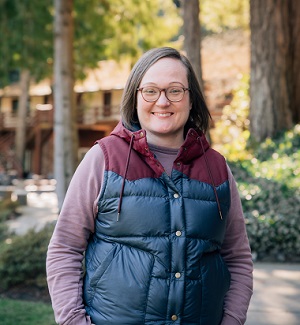
You never know what can happen when people gather to care for each other, even when they have little in common.
Creating Conversation is a weekly editorial, curated by the Centre for Missional Leadership (CML), which gives opportunity for people to speak about issues they believe are vital for the church in Vancouver.
One of the goals of this weekly article is to spark dialogue – and action. We invite you to join the dialogue here on the Church for Vancouver website.
We also invite you to use the article as a discussion starter with your small group, church staff, friends and your neighbours. Thanks for participating in the conversation!
A tradition began last year within the pastoral team I am a part of – the tradition of curating a ‘pastoral playlist.’ The idea comes from Wesley Hill and is simply a collection of quotes and images that are good to ‘play back’ in the moments when pastoral nourishment is needed.
One phrase is presently getting more playback time than all the rest: “The thing is not the thing” is a quote that comes from a friend of mine who has seen her fair share of ministry joys and challenges.
Its words hold the reality that so often what is planned or highlighted is simply a platform or tool for something much deeper. The newcomers dinner? The dinner is not ‘the thing.’ The youth pizza night? The pizza is not ‘the thing.’ So often the true essence and goodness of an endeavour is wrapped in concrete logistics that can be mistaken as ‘the thing.’
Two elements of church life where this phrase regularly ‘plays back’ at me are related to preaching and small groups.
I have stopped being surprised at the parts of the sermons I preach that resonate with listeners. When people connect to a part of my sermon to such a level where they share that resonance with me, time and time again, it’s not the main idea – the expounded theological principle – but a seemingly insignificant line.
Yet when they reflect back to me what they heard, suddenly that throwaway line is far from minor. The sermon itself is not the thing. The preacher herself is not the ultimate preacher. The Great Preacher is preaching into people’s lives and that is truly ‘the thing.’
 One great part of my job is that I get to visit the small groups which run within the life of my church – and each time I visit a group I walk away questioning my math skills.
One great part of my job is that I get to visit the small groups which run within the life of my church – and each time I visit a group I walk away questioning my math skills.
They are full of people who should not like each other, who should not have time to meet and who do very ordinary things when they do meet. And yet, the ecosystem of care that results within each of them doesn’t add up. Faithfully gathering, praying and opening God’s word in such ordinary ways somehow is ‘the thing’ that God seems to delight in and infuses with surprising beauty.
This idea of ‘the thing is not the thing’ is by far not novel to formal church life, but rather I have a sneaking suspicion is simply how God works in all facets of creation.
In scripture, a burning bush wasn’t just a burning bush, a shepherd boy was not just a shepherd boy, and a baby was not just a baby. In office life, apologizing to a teammate is not just an apology and initiating a hard conversation is not just a conversation. In friendship, the simple act of asking follow up questions reveal ‘the thing’ of genuine care and starting sentences with “remember the time . . .” points to ‘the thing’ of shared experiences.
And yet, to be honest, I find the truth behind this to be slightly infuriating. If ‘the thing is not the thing,’ then how do I know what matters? Does anything really matter? Before an existential crisis ensues, let’s consider some additional contours to ‘the thing is not the thing’ principle:
- The concrete things still matter. Rather than inviting us to throw planning and logistics out the window, embracing ‘the thing is not the thing’ invites us to stop and consider what and where we give our energy and attention. For example, this past fall our pastoral team was faced with the ever-present conundrum of deciding if the six-week book cohort we were offering to our congregation should be held online or in person. We went back and forth discussing the pros and cons and then tried a different approach. What is ‘the thing’ of the cohort? We realized our desired primary purpose was spiritual formation through the reading of the book and through the opportunity for differing perspectives to gather and discuss. This meant a format that allowed for a group with various ages and life rhythms mattered and that deep connection among the participants, as great as that is, was not the primary goal. Suddenly, the decision before us became clear. In this case, offering the group online allowed us to invest in what mattered.
-

One of the best examples of ‘the thing is not the thing’ is what happens when people gather around a meal.
Weaknesses hold less power. One of the best examples of ‘the thing is not the thing’ is what happens when people gather around a meal. That being said, we likely can all think of an example of a meal with terrible food or uncomfortable conditions that was still a special experience. One of my favourite meals was held in a Vancouver basement apartment, sitting on the floor, being served food straight from the stove. The beauty in knowing ‘the thing is not the thing’ means that if the chairs are from Pottery Barn or the local thrift store, or if the host has conversational skills on an Oprah level or starts sweating if someone looks at them, are workable factors because these are ultimately not ‘the things.’ The power of a meal is found in the intentionality of an invitation, the common humanity of eating together, and holding space with and for one another.
- . ‘The thing is not the thing’ packs a particular punch in the context of living among friends, family and coworkers who likely have very little to no framework of Christianity. It’s easy to see this reality as discouraging, but if ‘the the thing is not the thing’ principle is in the forefront of our minds, suddenly a missional buffet is set before us. Everyday activities such as the conversations at the edge of driveways when taking out the garbage, the attendance of Christmas parties and invitations to share a drink on a Friday night are building blocks of shared life and relationship that The Living God delights in mischievously indwelling. We often don’t know how God will use small acts of intentionality, or in other words, what will be ‘the thing’ – and there’s no need to manufacture situations that aren’t authentic. Rather, faithfulness to others and the Holy Spirit is what is being asked.
So I wonder, where is God asking us to step back and consider what we’re putting significance in as being ‘the things?’ What resource, personality trait or special timing – that actually aren’t ‘the things’ – are we allowing to be barriers in joining God’s redemptive work?

Jenn Richards is Associate Pastor at Tapestry Nights.
May God give us eyes to see things as they truly are and anoint us with humble confidence to creatively live as pockets of faithful presence in a world where the good news of Christ is and always will be ‘the thing.’
Jenn Richards is Associate Pastor at Tapestry Nights, the Saturday night campus of The Tapestry Church in Richmond. She holds an MDiv from Regent College and loves the food, culture and creative missional living that the Pacific Northwest offers.
